In 2018, ThePrint’s list of India’s leading intellectuals captured the zeitgeist like nothing else. Public conversation about it lasted for weeks.
This year, we bring you a new list—the intellectuals to watch out for in the next decade.
ThePrint formed a jury panel of experts to nominate a list of thinkers in the fields of geostrategic affairs, economy, social science, and political thought. Members of the jury decided the names individually and in complete secrecy.
The jury for the political thinkers list identified noted intellectuals who are evolving new prisms of studying politics and bringing innovative tools and insights to understand the 21st century.
Jurors: ThePrint’s panel of jurors includes CSDS senior fellow and columnist Yogendra Yadav, senior editor and commentator Vir Sanghvi, Carnegie senior fellow Milan Vaishnav, and CSDS associate professor and author Hilal Ahmed.
 Amit Ahuja: Associate Professor of Political Science, University of California-Santa Barbara
Amit Ahuja: Associate Professor of Political Science, University of California-Santa Barbara
He is the author of Mobilizing the Marginalized: Ethnic Parties without Ethnic Movements, which won the 2020 New India Foundation Kamaladevi Chattopadhyay Book Prize. He recently coedited a terrific new volume with Devesh Kapur, Internal Security in India: Violence, Order, and the State, and is currently working on a new book examining how multiethnic states manage the challenge of building national armies.
 Andy Mukherjee: Columnist and financial journalist
Andy Mukherjee: Columnist and financial journalist
Easily the freshest and most insightful voice when it comes to Indian politics and the economy. Mukherjee writes extensively on economic policies and their socio-political ramifications, providing critical insights into India’s financial landscape.
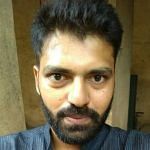 Asim Ali: Political researcher, columnist, and former CPR Associate
Asim Ali: Political researcher, columnist, and former CPR Associate
A model of political sense sans political science, Asim Ali keeps a sharp eye on the shifting sands of mainstream politics while maintaining a moral lens. He is one of the most original thinkers of our times; his columns have appeared in publications like The Telegraph, The Times of India, The Wire, and The New York Times.
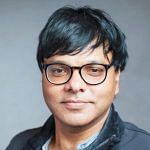 Dhananjay Rai: Faculty member at the Department of Gandhian Thought and Peace Studies, Central University of Gujarat
Dhananjay Rai: Faculty member at the Department of Gandhian Thought and Peace Studies, Central University of Gujarat
Rai is a dynamic Gandhi scholar who has revised and published two major works by Gandhi recently. He also writes in Hindi and is known for his book Poorna Swaraj, which explores Gandhi’s vision for complete independence.
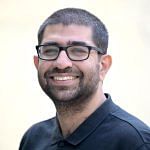 Gautam Bhatia: Lawyer and author
Gautam Bhatia: Lawyer and author
With so much politics shifting to the courtrooms, you need Gautam’s incisive yet nuanced reading of judicial verdicts to make sense of the deep politics of the Indian state. His writings often explore the intersection of law and politics, making him a crucial voice in contemporary legal discourse.
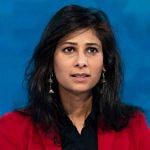 Gita Gopinath: First Deputy Managing Director, International Monetary Fund (IMF)
Gita Gopinath: First Deputy Managing Director, International Monetary Fund (IMF)
By the time she moves beyond the IMF and speaks freely about her own views, she will be one of the world’s most respected economic voices. Gopinath’s expertise in international macroeconomics positions her as a leading figure in global economic discussions.
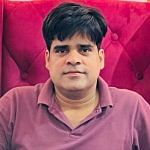 Kamal Nayan Choubey: Associate Professor of Political Science, Dyal Singh College, Delhi University
Kamal Nayan Choubey: Associate Professor of Political Science, Dyal Singh College, Delhi University
He is an exceptionally hard-working researcher and teacher who has already written, translated, and edited more than 10 books in Hindi and English. His YouTube channel Parakh is highly popular among students interested in political science.
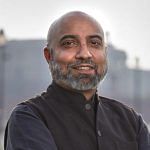 Mihir Sharma: Senior Fellow, Observer Research Foundation
Mihir Sharma: Senior Fellow, Observer Research Foundation
He is less prolific now as a journalist ever since he started writing for ORF, but his work is always profound and incisive. Sharma’s analyses often tackle economic issues and their implications for Indian society, making him a key commentator on contemporary affairs.
 Milan Vaishnav: Senior Fellow and Director, South Asia Program, Carnegie Endowment for International Peace
Milan Vaishnav: Senior Fellow and Director, South Asia Program, Carnegie Endowment for International Peace
Already a significant force in the academic study of Indian politics, I venture to suggest that he will soon become the leader in his field. His research focuses on the political economy of India, particularly issues related to corruption and governance, and he hosts the podcast Grand Tamasha, which discusses Indian politics and policy.
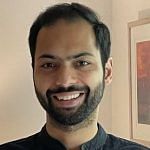 Mohsin Alam Bhat: Lecturer, Queen Mary University of London
Mohsin Alam Bhat: Lecturer, Queen Mary University of London
He specialises in constitutional law and human rights. Bhat has done stellar work on citizenship, hate crimes, majoritarianism, and democratic accountability. His research is both incredibly incisive and timely; few scholars have trained their sights on the pressing challenges facing Indian democracy more sharply than Bhat.
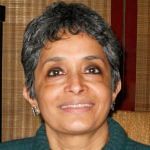 Nivedita Menon: Professor of Political Thought, JNU
Nivedita Menon: Professor of Political Thought, JNU
Menon is a prominent feminist scholar and professor at JNU, where she teaches political thought. Her critiques of contemporary Indian politics, particularly regarding issues of nationalism, gender, and human rights, are incisive and particularly important in today’s time. Her influential books include Recovering Subversion: Feminist Politics Beyond the Law (2004), Power and Contestation: India since 1989 (2007), Seeing Like a Feminist (2012), and most recently Secularism as Misdirection: Critical Thought from the Global South.
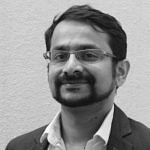 Pranay Kotasthane: Deputy Director, Takshashila Institution
Pranay Kotasthane: Deputy Director, Takshashila Institution
Kotasthane chairs the High Tech Geopolitics Programme at Takshashila Institution. He has written three books in recent years—Missing in Action: Why Should You Care About Public Policy, When the Chips Are Down, and We, the Citizens. Somehow, he also finds time to co-write one of the best India-focused weekly newsletters, “Anticipating the Unintended,” and co-host a popular Hindi-Urdu podcast on politics, policy, and technology called “Puliyabaazi.”
 Rahul Verma: Fellow at the Centre for Policy Research
Rahul Verma: Fellow at the Centre for Policy Research
He is one of the most prolific young political commentators in India. Verma is a trained political scientist with a unique capacity to engage with public debates without adhering to any sort of political correctness. His research interests include voting behaviour, party politics, political violence, and media; he regularly contributes columns to various news platforms.
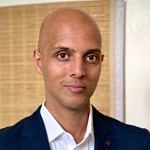 Tariq Thachil: Professor of Political Science and Director of CASI, University of Pennsylvania
Tariq Thachil: Professor of Political Science and Director of CASI, University of Pennsylvania
He is a brilliant young academic with an impressive ability to evolve new methodological tools to understand Indian politics. His research focuses on political parties and behaviour, identity politics, urbanisation, and migration in India; he is also known for his book Migrants and Machine Politics.
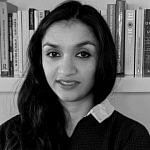 Vanya Vaidehi Bhargav: Assistant Professor at National Law School of India University
Vanya Vaidehi Bhargav: Assistant Professor at National Law School of India University
She is an intellectual historian and author of a brand-new book titled Being Hindu, Being India: Lala Lajpat Rai’s Ideas of Nationhood. An emerging scholar of Hindu nationalism, comparative secularism, and Indian political thought, Bhargav’s work contributes significantly to understanding contemporary Indian identity politics.



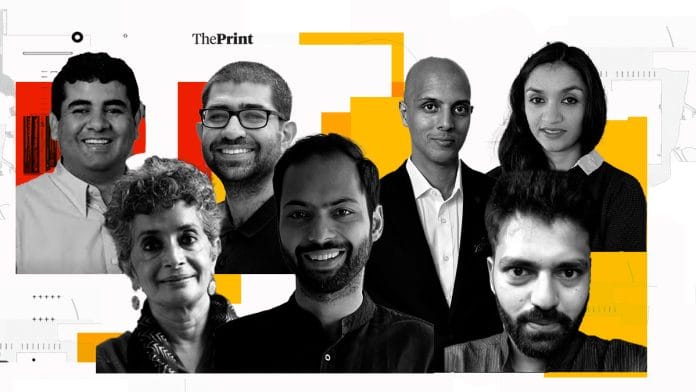



The jurors, except for Milan Vaishnav, are a joke. And the prepared list of political “thinkers” is another joke, again with certain exceptions pike Andy Mukherjee, etc.
Which one is the greater joke (or better joke) is hard to tell. Maybe time will tell.